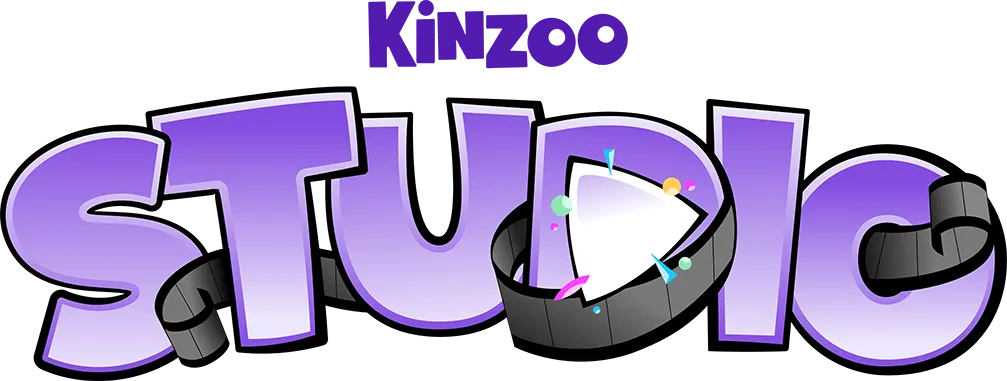Before founding KidCoach, Kavin Wadhar worked in the corporate world. After excelling at a variety of roles, including strategy, sales and marketing, he wanted to explore something different—and because of his personal background, he was especially drawn to education. If you wind the clock back two generations, his grandfather grew up in a poor village in India, and it was through education that he raised himself up out of poverty and become a doctor. Since then, learning has always been important in Kavin’s family, and he knew he wanted to pass his passion for education on to his kids.
Today, his company KidCoach helps other parents play an active role in their children’s development and education. We sat down with Kavin to learn more about how to raise kids to thrive in a fast-paced world where change is the only constant.
What is KidCoach?
KidCoach helps families have more meaningful conversations while also building the skills that kids need. Parents want to be involved in the development and education of their children. And, they understand that the world is changing. The skills that our kids will need are different than what is typically taught in schools. It’s not just about being good at math and English—that sort of traditional academic stuff. It’s about being creative, thinking critically, being empathic, leading and collaborating well. These are the so-called soft skills for the 21st-century. That kind of stuff is as important—if not more important—than the academics. That is the way the world is going.
Parents are busy. They want to help their kids develop the skills that are necessary for their futures—but don’t necessarily have hours and hours to do that. KidCoach is able to provide a quick, efficient, fun solution that takes just five minutes. The app has hundreds of engaging and challenging questions to get really great conversations going with kids. Each is deliberately designed to support the development of one of those soft skills.

What kinds of questions help in building soft skills?
If you want to develop creativity, a question might ask: what are 10 things to do with a cup? As you’re thinking about that, you can already feel your imagination taking over. If you want to develop leadership, a question might ask: how has your teacher shown leadership at your school? And a question to develop empathy might ask: can you name 10 different emotions? Quite often, just having that range of emotional vocabulary is important to help children label emotions.
These conversation starters can be slotted into a routine while walking to school or around the dinner table—wherever you have five minutes with your child.
How has education changed since you first started out?
Obviously with COVID, and schools closing all around the world, it’s made it obvious that parents are such important players in the education of the child. But even pre-COVID kids spent around 80% of their time at home with parents and 20% at school. And then during COVID, that 80% turned to 100%. But that’s what was necessary to make clear that this is a combined ecosystem. Parenting and schools need to work together across the two different education settings, and we can’t ignore the role of the parents.
Parents have done some amazing homeschooling during COVID. Coronavirus has further underlined the role of the parent and the power parents have to shape and develop their own child. And my mission and passion is empowering parents to do that in a way that is quick, easy and fun—and fits into their life.
How does the app help parents and families?
KidCoach is not an app where you put an iPad in front of kids and they watch a video or play a game. This technology is for parents—it’s like flashcards that they can glance at for inspiration. And then they put the phone away and have a human, one-on-one dialogue with their child prompted by the app. It’s about supplementing people’s lives and fitting into those micro-moments with micro-learning when you’re waiting for the bus or walking around the park.
Technology has the power to work in those moments in a very helpful way. We all carry our phones in our pockets—they are always there. And when you use it to learn something or be inspired by something, that’s powerful.

How can soft skills help kids navigate the online world in particular?
One of the questions in the app is: what happens when you Google “is climate change bad?” Developing critical thinking can help you interpret what you’re seeing when you do online research. And, there are follow-up prompts that ask kids to think about how a fossil fuel company’s view would differ from an environmental agency or a government institution.
Doing effective online research means you need to understand biases and viewpoints, and that skill falls under critical thinking. What you’re doing is thinking all the way around the situation and considering different viewpoints. Who thinks what and why? And how can you come to your own reasoned, balanced conclusions? That’s one aspect of how these soft skills help kids navigate the online world.
But the other benefit is resilience and emotional fortitude. Depending on how old a child is, they may have Instagram and TikTok, and when they post a video that gets two likes instead of 20, that might be upsetting. And then even worse, a troll comes on and says, “You have fat ankles,” or something else hurtful. Of course, a lot of children feel really disheartened by that. They spiral and think they’re not good enough when they’re exposed to these vanity metrics.
If we can develop our children’s emotional resilience—to help them understand that when somebody says something mean about you, it can be a reflection on them—and if we can teach our kids to be kind in the face of adversity, then that’s going to help them navigate social media and the monsters that can lurk in the corners.
What level of responsibility do platforms have to protect kids and help them develop?
It’s tempting to say, “lots,” but social media platforms are incentivized by engagement. When they show you provocative, controversial content, it’s actually good for the algorithms. And in some ways, I don’t blame the social media companies for falling into the trap, because when you follow the money, they’re driven towards engagement—not towards protecting children.
They try and offer requirements, which everybody seems to circumvent. But how much can we hold social media companies to account based on ethical and governmental regulatory mechanisms? Clearly, they’re responsible for creating the platforms through which we all engage.
But the system is somewhat broken and we need to create a viable alternative for children to get used to the online world in a safe, closed ecosystem with family and friends.
That’s one thing. The other possible alternative is a paid social media business because when you don’t pay, you’re the product. But we need to work on the system, not just point the finger at social media platforms.
What issues do you think kids are most concerned about today?
The next generation is curious. They have information at their fingertips and so many connection points around the world. What they’re interested in and passionate about is the stuff that everybody talks about: the environment, fairness, democracy, equality and equal rights. That’s one of the great things that social media has created—a level of democracy where people can connect with everybody in the world. That can give you a voice and make sure everything is level.
What are some of the positive ways you’ve seen kids using technology?
There’s an example of anxious kids who have done various exams in the UK, and they’re coaching others on how to go through that process—kind of like a mini YouTuber. They have a YouTube channel and make their own mini-presentations. They’ve essentially taken a level of expertise, and now they’re coaching and educating others so that they can speed up the process.
That plays into an overall trend that we’re seeing in the education market: people teaching other people because the internet allows everyone to connect to everybody else. So it’s cool that these kids are already engaging with that at the age of 11.
What advice would you give to kids today?
Don’t worry too much about those exams. A little more than 10 years years ago, there were no iPads. Twenty years ago, there was no Facebook. Google had just started. And Amazon was only selling books. And if you think about a kid today, six, seven, or eight years old, in another 10 or 20 years when they start emerging into the world of work, how much more will the world have changed? Exponentially?
My advice for kids is to let that sink in. And your traditional education system probably isn’t completely preparing you for that. I’m not pointing any fingers—it’s just a systemic issue that’s well documented. There are lots of amazing, smart, wonderful people trying to figure out how to make sure the education system does futureproof kids, but it’s incredibly difficult. It’s not just about knowing stuff—it’s about the kind of person you are. Just be really, really curious and be aware that the world is changing fast. It’s an exciting thing, to navigate change, and hopefully, your parents can help you with that.
If you’re interested in learning more about KidCoach, check out their website or download the app from the App Store or Play Store! And, you can find more awesome insights from the KidCoach team through their podcast here.



























